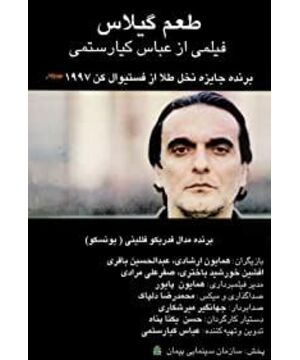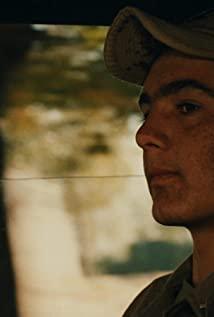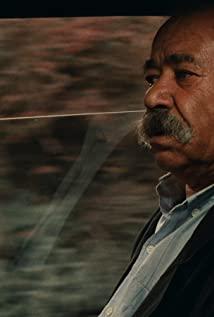The pickup of the protagonist of "Abbas Kiarostami" drove all the way along the hillside. From the close-up of the face at the beginning, you can feel the gloom and unhappiness in this person's heart. He was expressionless to the workers who passed by asking for work, but he was actually examining it. At first, he just wanted to solve this problem quickly. He expected that as long as he gave money, these people would be willing to do anything for him. But later, he found out that it couldn't. The first man who called from a public phone booth heard his offer of "help", as if his pride had been insulted, and drove him away with restraint and anger; the second time I met a man who dropped out of school because of his family's poverty and was serving in the military The young man, he followed suit again, like a father lured a child, telling him "When you accept a job, you should first ask about the salary, not what the job is." When he finally got the shy young man to open his heart, he could When explaining what he was going to do, the young man was still taken aback. No matter how he persuaded, the young man finally got out of the car and ran away. I think he is still thinking about himself at this moment. The third time, he met a seminary student. This time, he may feel that it will be easier to explain. After all, he is educated and his age is at the stage of entering the world. From the angle of view, it shows that his suicide and helping him fill the hole are not against the will of God, but the students who are still in the bookstore cannot understand his strong desire to die, because the knowledge in the book only tells him: In the past, if there is any problem, speak up and face it, it will pass. The shallow life experience is destined that this student cannot and will not understand this middle-aged man who wants to die but doesn't want to explain the world he lives in. The last one, he met a father and worker who was older than him and worked in the workshop of the Animal History Museum. This road trip was different from the previous three. The middle-aged man didn't speak the whole time. After a worker learned of his plan, he told him all the way through his own experience. It turned out that he was also a middle-aged man who had hoped for a hundred years. He just accidentally tasted a mulberry fruit when he committed suicide, and then opened his eyes and saw As a student after school, he suddenly felt that it seemed that he could continue to live. So he picked the mulberry fruit that saved his life and brought it home to his wife and daughter, as if everything had happened, but it still seemed to be such a dull day. But the worker who tried to kill himself knew that something had changed in his heart. Just like the very vivid example in the film: the patient went to the doctor and felt pain all over his body, and the doctor told him that your body is fine, but your finger is broken. What a simple truth, when you feel that life is coming to an end, you might as well look at it from a different angle. In this way you will rediscover the Four Seasons
There are many lines and dialogues in the film, and the scenes are also fixed, usually a close-up of the protagonist in the car, the passengers on the co-pilot and the pickup truck driving on the hillside. But the overall approach is still very cinematic. In Bi Gan's understanding: these lines and dialogues, as the literary means of the film, create a poetic atmosphere and highlight the core of life-people need to communicate and dialogue with others. At the beginning, the sky is full of loess, and there is no one. At the end, the protagonist begins to see his lover along the way, the children in the town, and the residential building. Then he turns the car around, and his face as gray as death begins to appear anxious and emergent. got angry. He found the worker and repeatedly told him to "make sure that you are still alive", which was an act of kindness and fate. He knew the workers needed that money, and he knew that his heart was beginning to yearn for life, so as if he had been redeemed, he returned home peacefully to pack his clothes, and then sat in the pit with his eyes wide open, gazing firmly and spiritually in the dark is unknown.
It doesn't seem to matter how the workers rescued him. We know that fate is very impermanent and people are very tenacious. As long as we want to survive, we will not lack the hope of life.
View more about Taste of Cherry reviews











